PHP arrays can be indexed or associative. Indexed arrays are similar to conventional programming language arrays while associative arrays are like dictionaries or maps where elements can be accessed by keys. Array elements can be of any type and arrays can be heterogeneous. PHP provides many functions for manipulating arrays like count(), sizeof(), array_slice(), in_array(), sorting functions, and more.
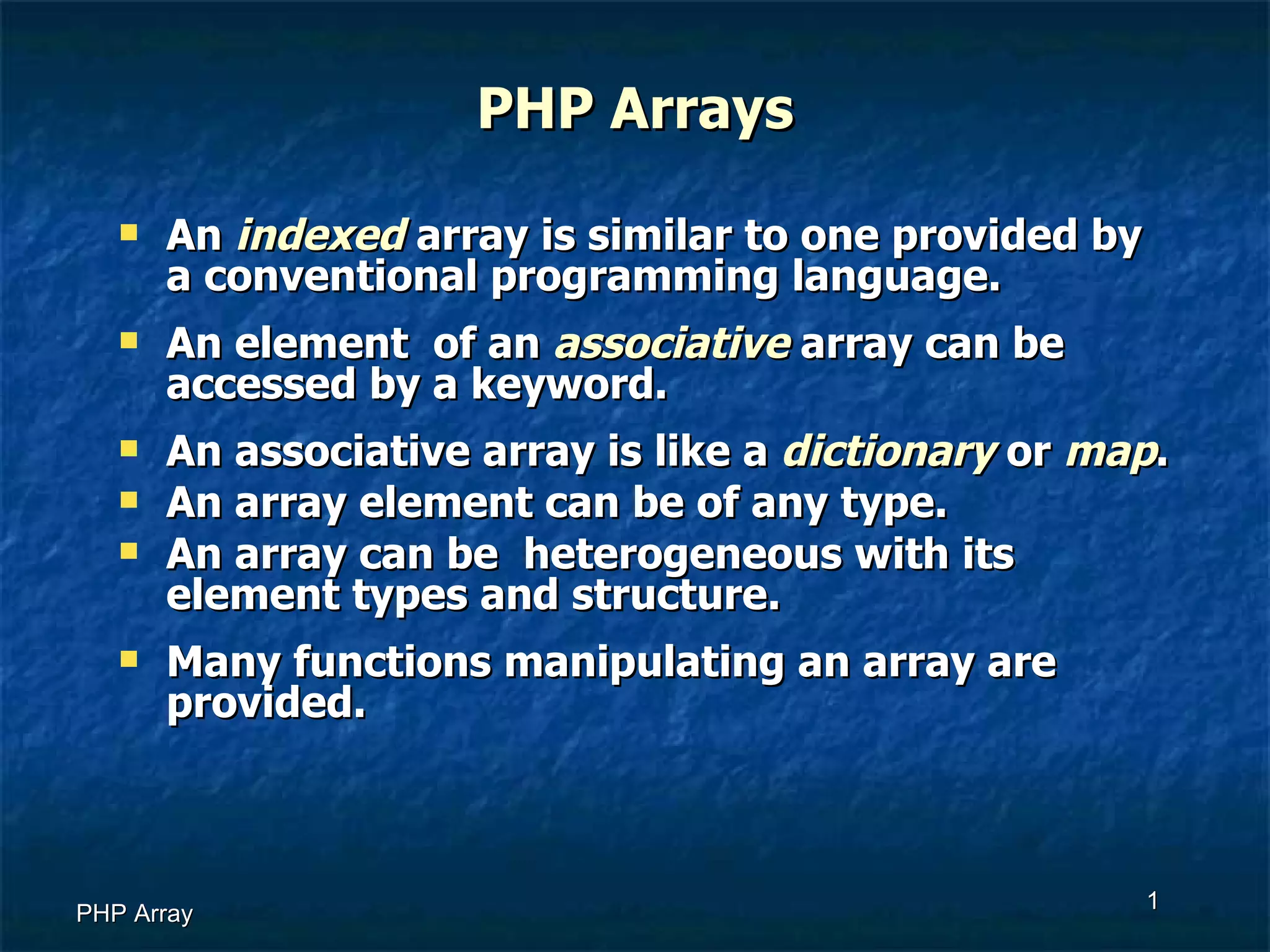
![Indexed Array PHP Array $animals = array("dog", "cat", "fish"); echo "$animals[0]\n"; echo "$animals[2]\n"; echo "$animals\n"; dog fish Array](https://image.slidesharecdn.com/phparray-110707082922-phpapp01/75/Php-array-2-2048.jpg)
![Updating and Adding Elements PHP Array $animals = array("dog", "cat", "fish"); echo "$animals[1]\n"; $animals[1] = " tiger " ; echo "$animals[1]\n"; $animals[] = "beaver"; echo "$animals[3]\n"; cat tiger beaver](https://image.slidesharecdn.com/phparray-110707082922-phpapp01/75/Php-array-3-2048.jpg)
![Associative Array PHP Array $animals = array( "dog“ => 15,"cat“ = >8, "fish“ => 2); echo "$animals[cat]\n"; $animals["bat"] = 100; echo "$animals[bat]\n"; 8 100](https://image.slidesharecdn.com/phparray-110707082922-phpapp01/75/Php-array-4-2048.jpg)
![Listing array element : for PHP Array $animals = array("dog", "cat", "fish"); for ($i = 0; $i < count($animals); $i++) { echo $i . "-th animal is a $animals[$i].\n"; } 0-th animal is a dog. 1-th animal is a cat. 2-th animal is a fish.](https://image.slidesharecdn.com/phparray-110707082922-phpapp01/75/Php-array-5-2048.jpg)
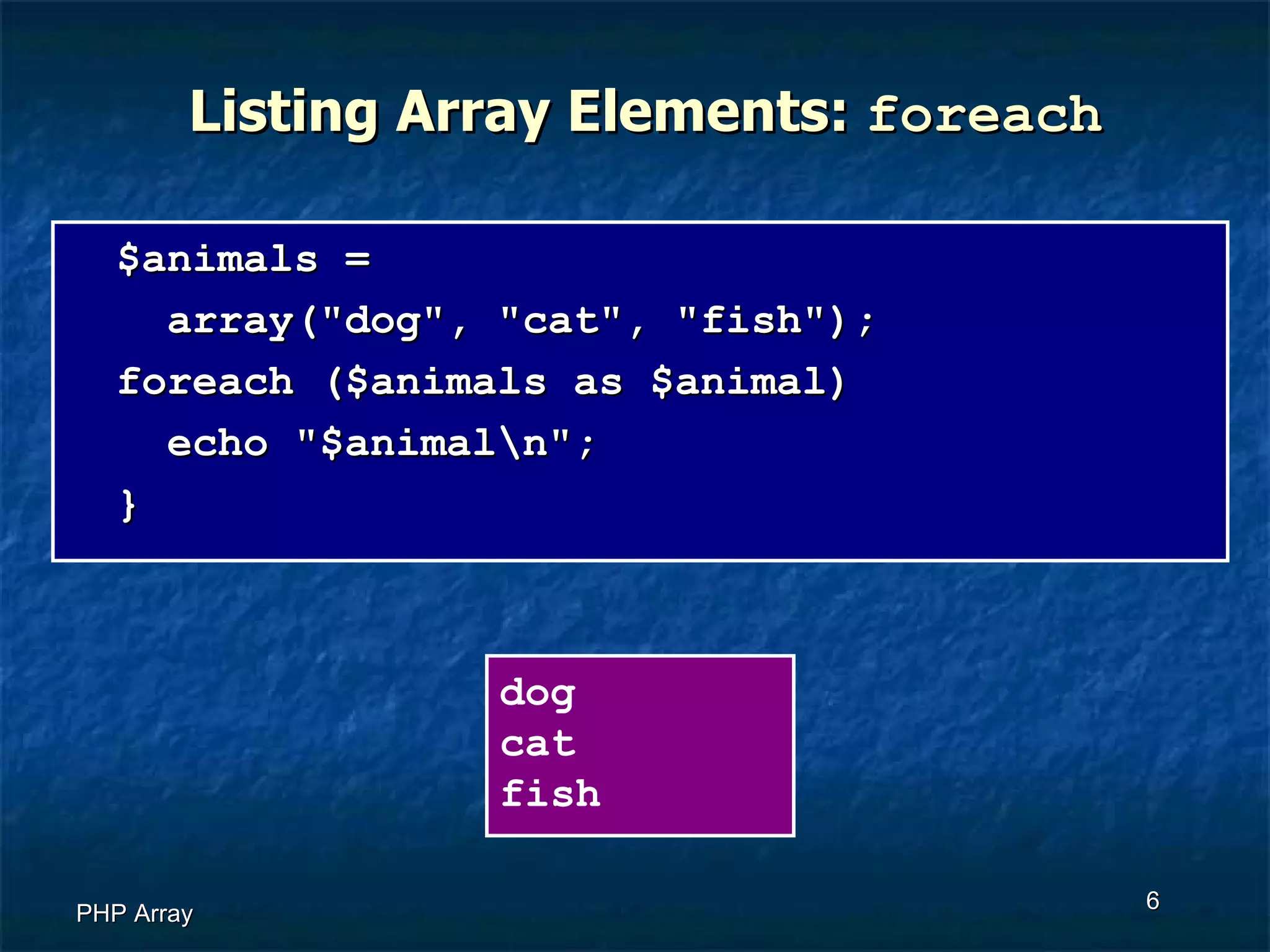
![while and each PHP Array $animals = array( "dog“ => 15,"cat“ => 8, "fish“ => 2); while ($item = each($animals)) print "weight of " . $item["key"] . " is " . $item["value"] . “.\n"; weight of dog is 15. weight of cat is 8. weight of fish is 2.](https://image.slidesharecdn.com/phparray-110707082922-phpapp01/75/Php-array-7-2048.jpg)
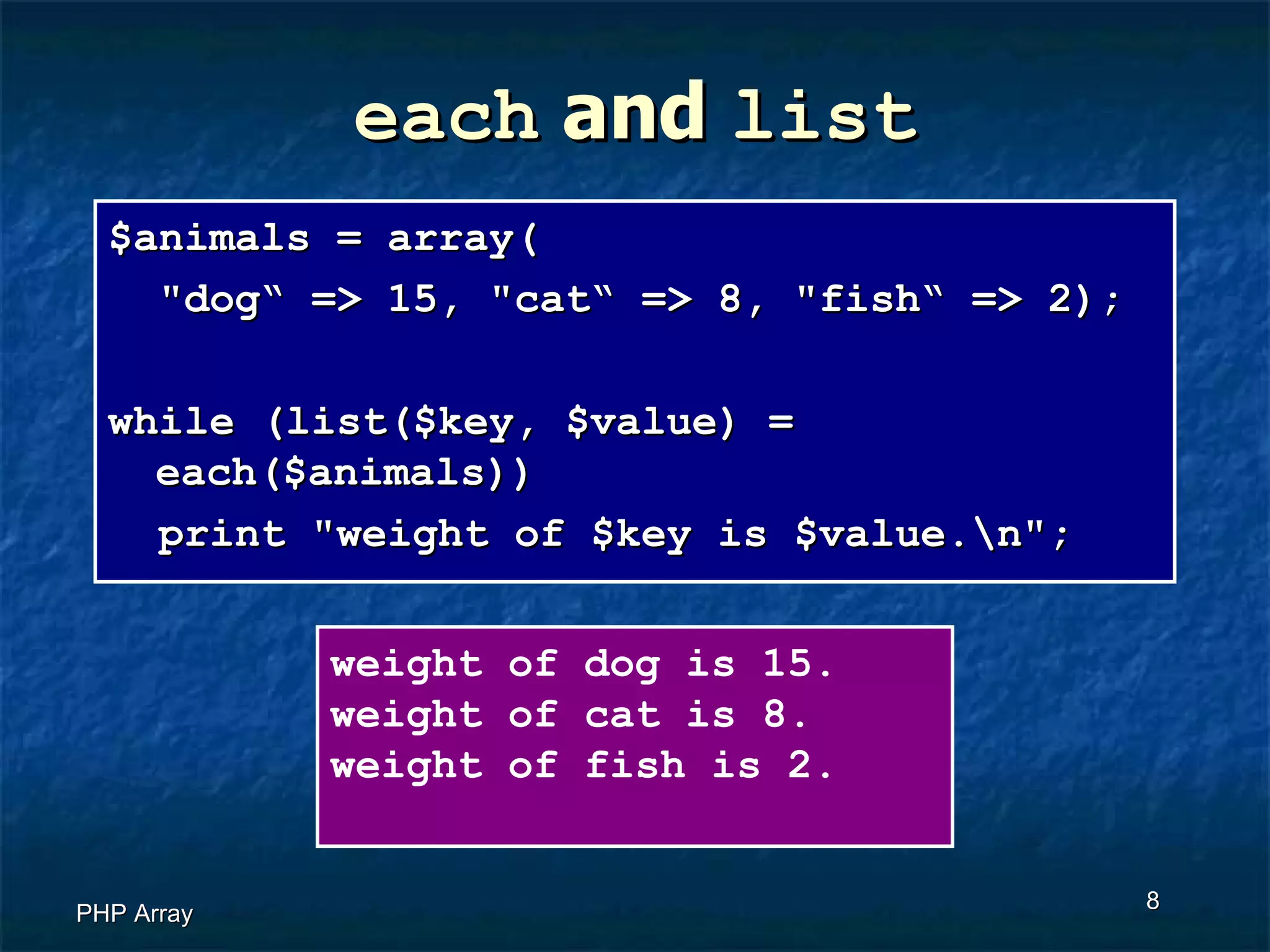
![Multi-Dimensional Heterogeneous Array PHP Array $books = array( array("title“ => “A", "author“ => “X"), array("title“ => “B", “ author“ => “Y", “ price“ => 25) ); print_r($books); Array ( [0] => Array ( [title] => A [author] => X ) [1] => Array ( [title] => B [author] => Y [price] => 25 ) )](https://image.slidesharecdn.com/phparray-110707082922-phpapp01/75/Php-array-9-2048.jpg)
![Nested Loops PHP Array for ($i=0; $i < count($books); $i++) { print "$i-th book is:"; while ( list($key, $value) = each($books[$i]) ) print “ $key: $value"; print "\n"; } 0-th book is: title: A author: X 1-th book is: title: B author: Y price: 25](https://image.slidesharecdn.com/phparray-110707082922-phpapp01/75/Php-array-10-2048.jpg)
![String as an Array PHP Array $myString = "My chars"; echo "$myString\n"; echo "$myString[1]\n"; My chars y](https://image.slidesharecdn.com/phparray-110707082922-phpapp01/75/Php-array-11-2048.jpg)
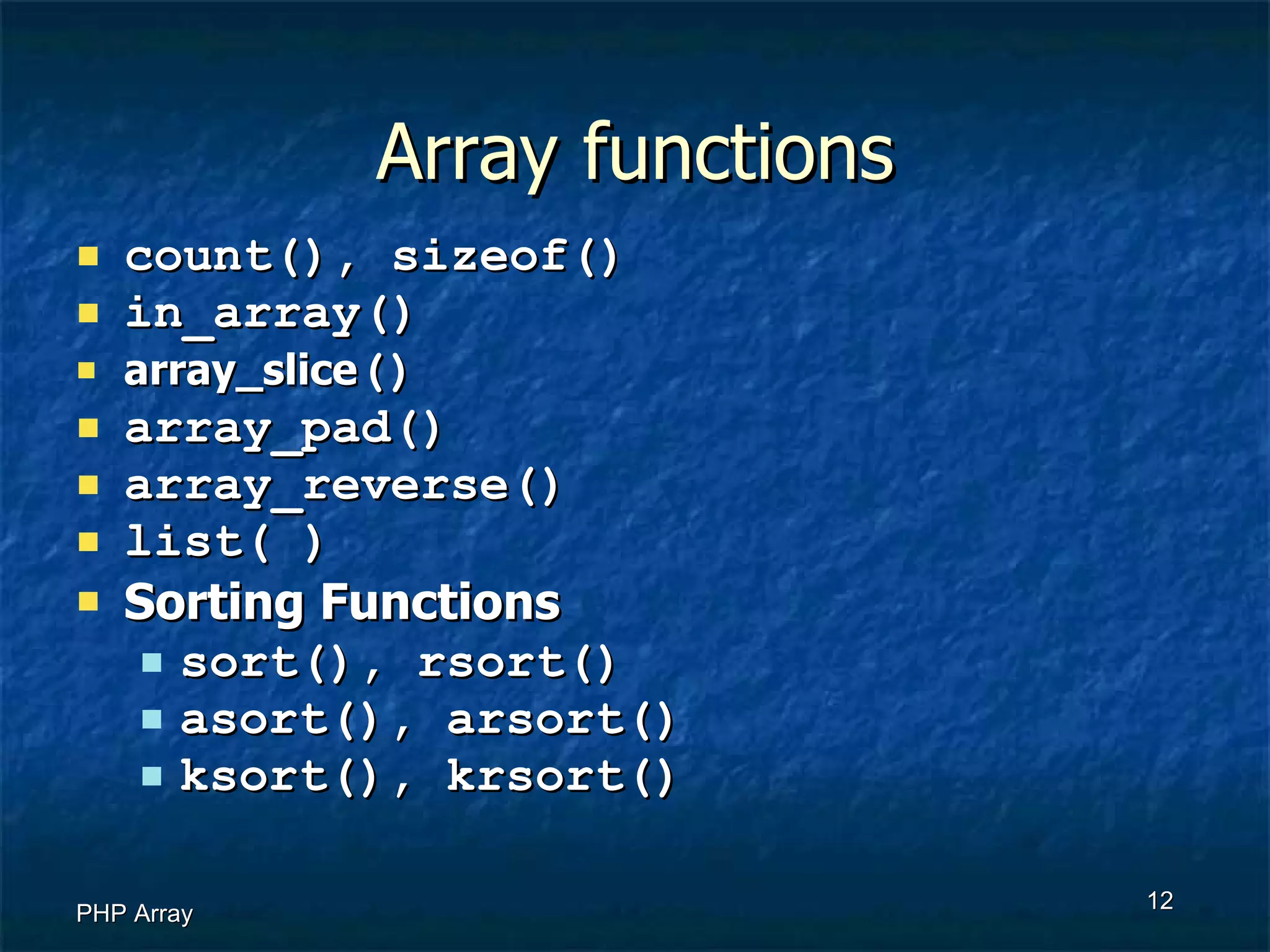
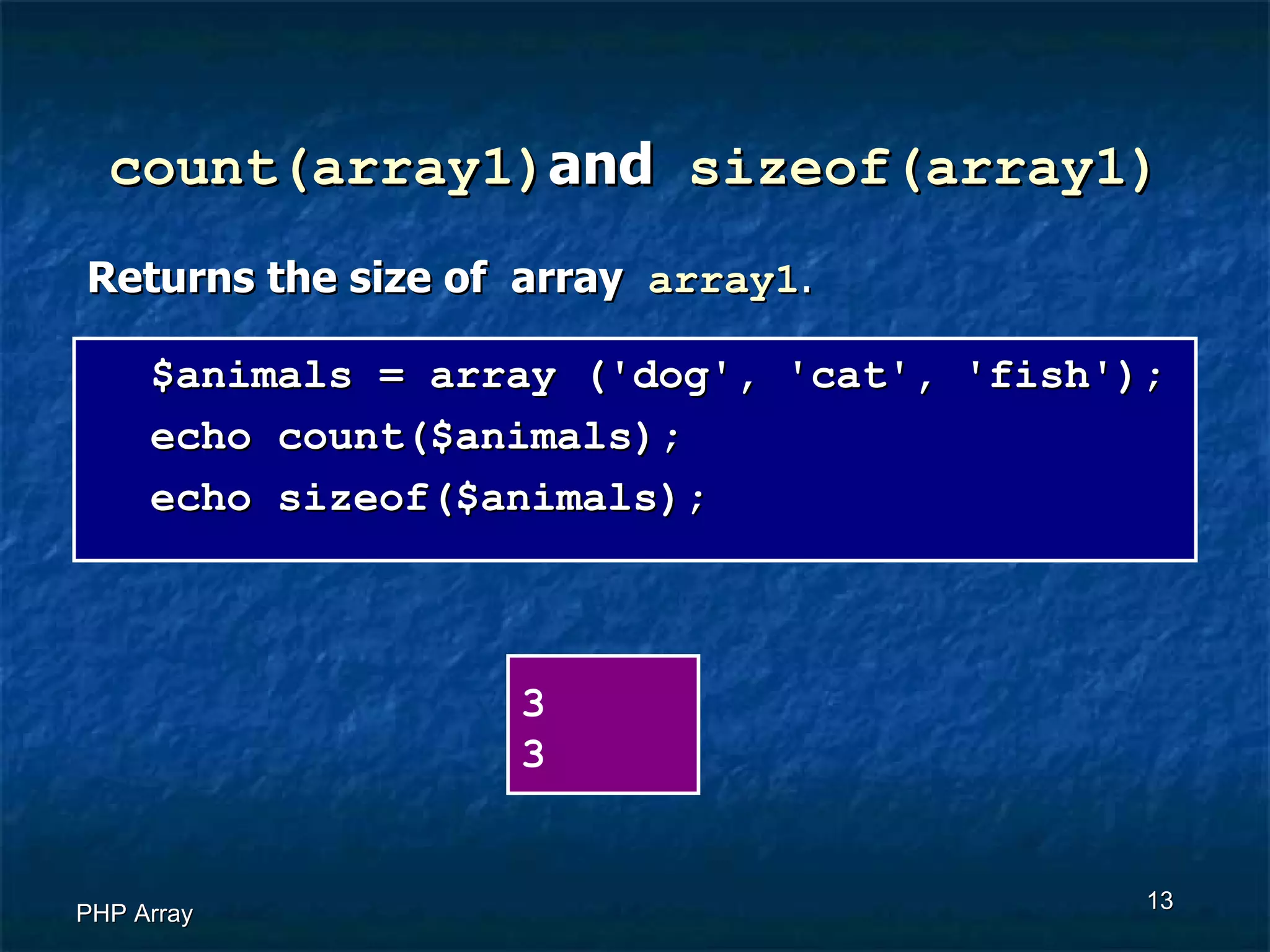
![array array_pad(array1, length, value) PHP Array Pad array to length length with value . $scores = array(1, 2); $padded = array_pad($scores, 5, 10); print_r($padded); Array ( [0] => 1 [1] => 2 [2] => 10 [3] => 10 [4] => 10 )](https://image.slidesharecdn.com/phparray-110707082922-phpapp01/75/Php-array-14-2048.jpg)
![array array_reverse(array1) PHP Array Return an array with elements in reverse order. Array ( [0] => fish [1] => cat [2] => dog ) $animals = array('dog', 'cat', 'fish'); $reversed array_reverse($animals); print_r($reversed);](https://image.slidesharecdn.com/phparray-110707082922-phpapp01/75/Php-array-15-2048.jpg)
![array array_slice (array1, offset, length) PHP Array Extract a slice of length from array1 starting at offset . $array1 = array(1, 2, 3, 4, 5, 6); $subarray = array_slice(array1, 3, 2); print_r($subarray); Array ( [0] => 4 [1] => 5 )](https://image.slidesharecdn.com/phparray-110707082922-phpapp01/75/Php-array-16-2048.jpg)
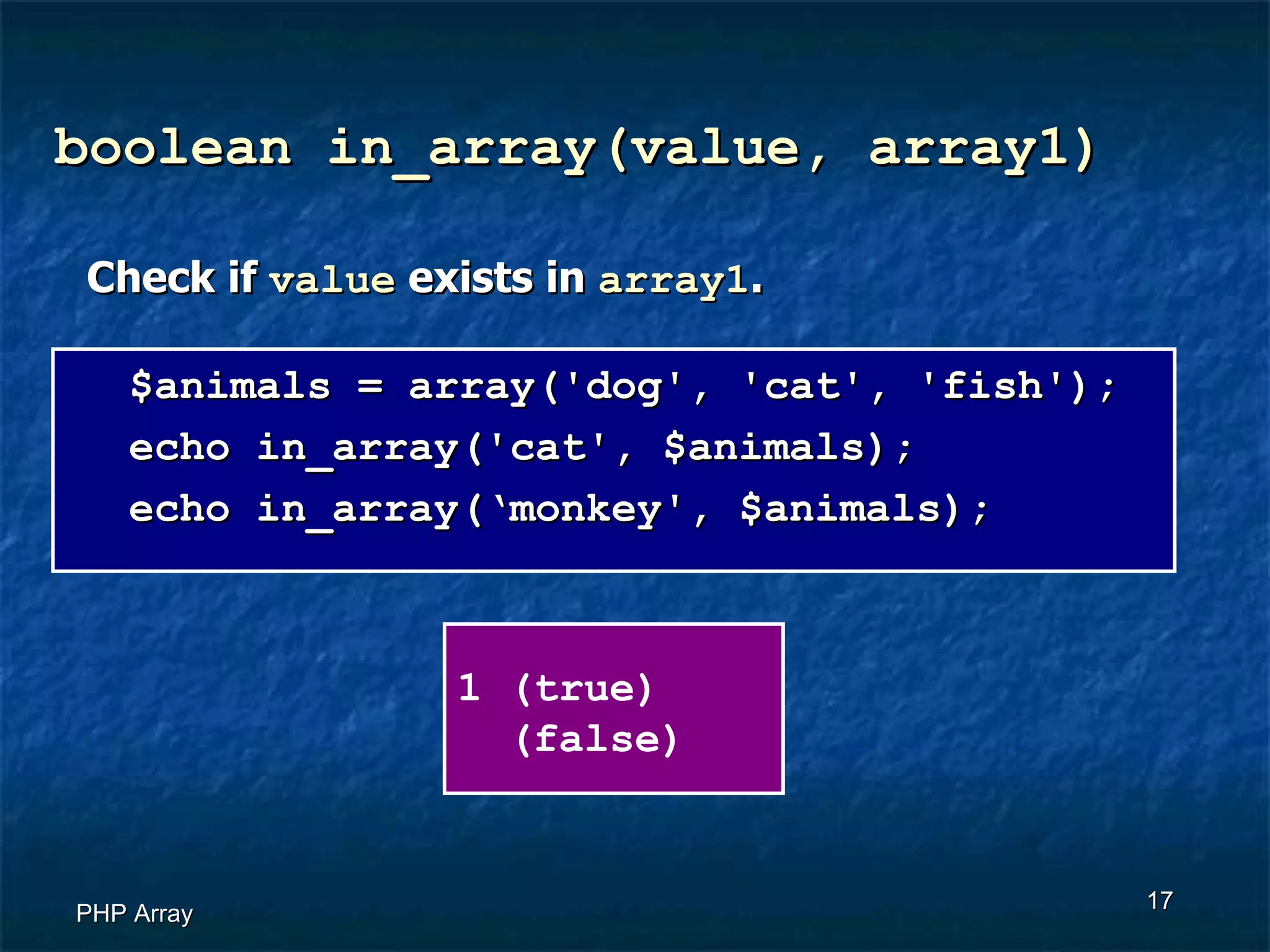
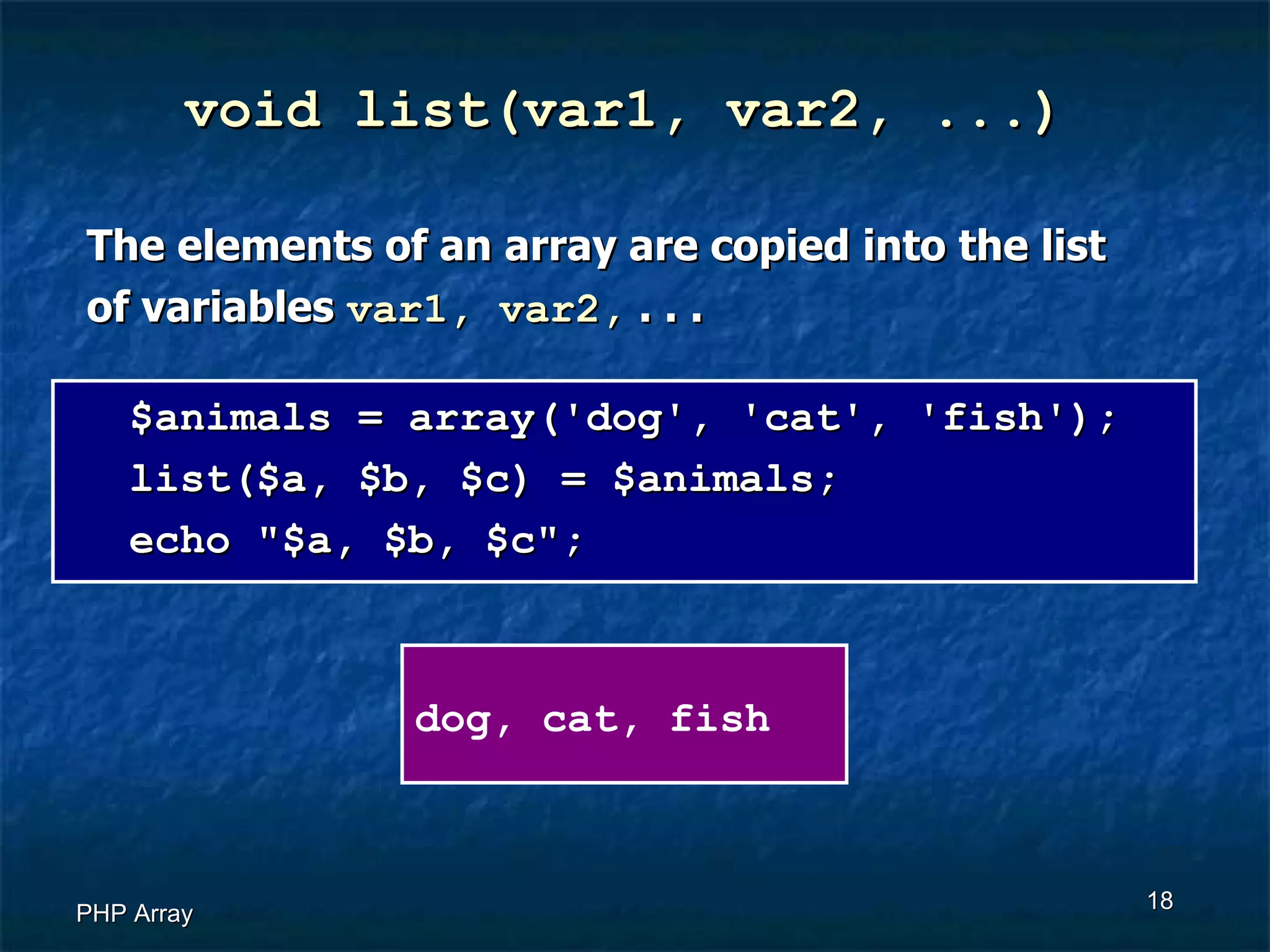
![sort(array) and rsort(array) PHP Array Sort the elements in an array in increasing or decreasing order. $animals = array('dog', 'cat', fish'); sort($animals); print_r($animals); Array ( [0] => cat [1] => dog [2] => fish )](https://image.slidesharecdn.com/phparray-110707082922-phpapp01/75/Php-array-19-2048.jpg)
![asort(array), arsort(array) PHP Array Sort an array maintaining index association. $animals = array('dog', 'cat', 'fish'); asort($animals); print_r($animals); Array ( [1] => cat [0] => dog [2] => fish )](https://image.slidesharecdn.com/phparray-110707082922-phpapp01/75/Php-array-20-2048.jpg)
![ksort(array), krsort(array) PHP Array Sort array by keys. $animals = array('dog' => 15, 'cat' => 8, 'fish' => 2); ksort($animals); print_r($animals); Array ( [cat] => 8 [dog] => 15 [fish] => 12 )](https://image.slidesharecdn.com/phparray-110707082922-phpapp01/75/Php-array-21-2048.jpg)